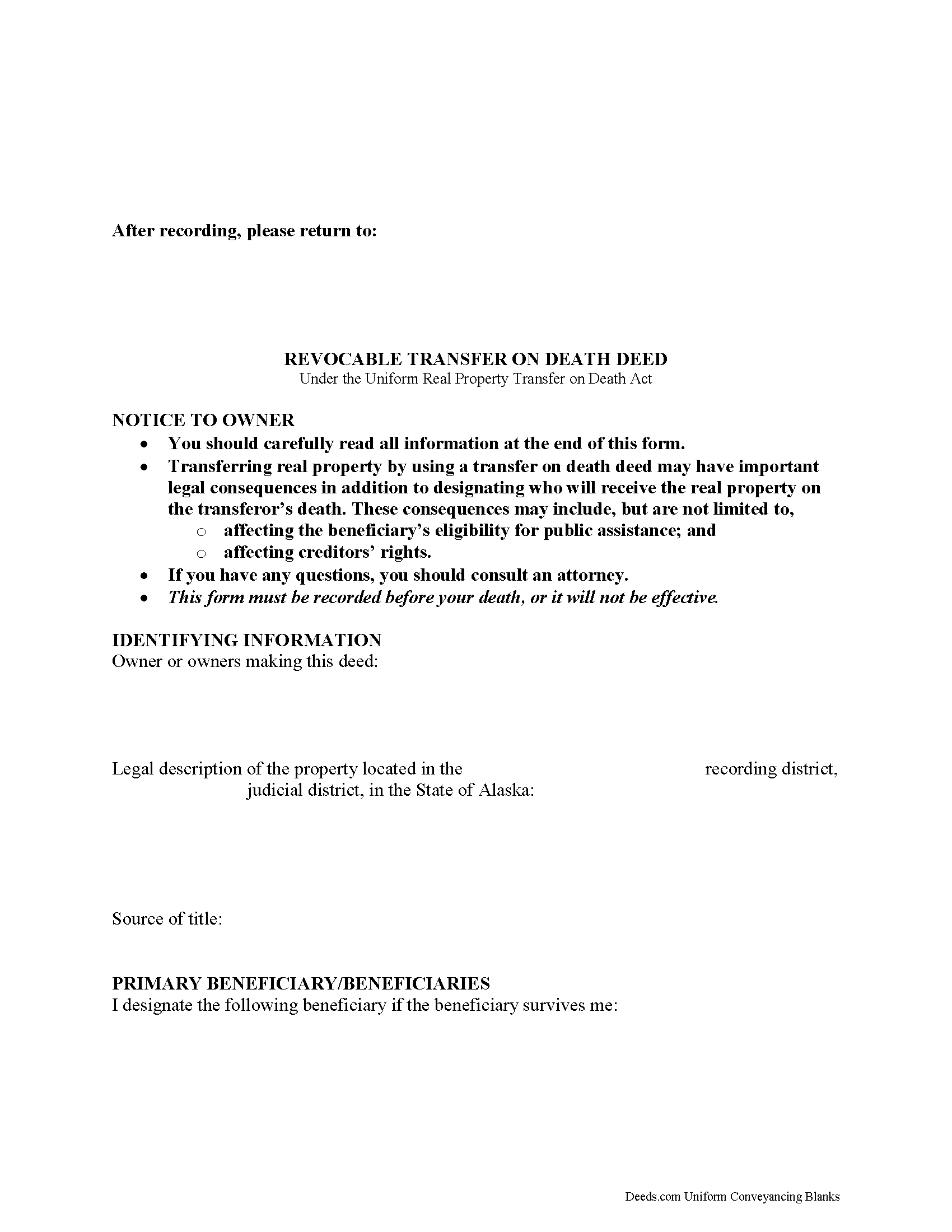Download Alaska Transfer on Death Deed Legal Forms

Alaska Transfer on Death Deed Overview

Real property owners in Alaska have an estate planning option: the transfer on death deed (TODD). Find the full text in AS 13.48.
This statute is based on the Uniform Real Property Transfer on Death Act (URPTODA). By adopting the provisions of the URPTODA, Alaska joins with an increasing number of states using this law to help real estate owners manage the distribution of what is often their most significant asset -- their real estate -- by executing and recording a transfer on death deed.
Transfer on death deeds are nontestamentary, which means ownership of the property passes to the beneficiary without including it in a will or a need for probate (AS 13.48.030). Still, best practices dictate that landholders should take care to ensure that their wills and TODDs contain the same directions.
Alaska's version of the URPTODA sets out the specific requirements for lawful transfer on death deeds:
- The capacity required to make or revoke a transfer on death deed is the same as the capacity required to make a will (AS 13.48.040).
- It must contain the essential elements and formalities of a properly recordable inter vivos deed, such as warranty or quitclaim deed (AS 13.48.050(1)).
- It must state that the transfer to the designated beneficiary is to occur at the transferor's death (AS 13.48.050(2)).
- It may not use a beneficiary designation that only identifies beneficiaries as members of a class or the deed is void. (AS 13.48.050(3)).
- It must be recorded before the transferor's death in the office of the clerk of the county commission in the county where the property is located (AS 13.48.050 (4)).
The named beneficiary gains no present rights to the property, only a potential future interest. Instead, the transferors retain absolute control during their lives. This includes the freedom to sell or transfer it to someone else, and to modify or revoke the intended transfer on death (AS 13.48.080). These details, along with the fact that TODDs only convey the property rights remaining, if any, at the owner's death, explain why they do not require notice or consideration (AS 13.48.060).
According to AS 13.48.090, the beneficiary gains equitable interest in the property ONLY when the owner dies. Note, however, that the beneficiary must be alive at the time of the transferor's death or the interest returns to the estate. To prevent this from happening, the owner may identify one or more contingent beneficiaries. All beneficiaries take title subject to any obligations (contracts, easements, etc.) associated with the property when the transferor dies (AS 13.48.090(b)).
If a beneficiary is unable or unwilling to accept the transfer when the owner dies, AS 13.48.100 includes the option to disclaim all or part of the interest as provided under AS 13.70 (Uniform Disclaimer of Property Interests Act).
With these new transfer on death deeds, real property owners in Alaska gained access to a convenient, flexible tool for managing one aspect of a comprehensive estate plan. Even so, a TODD may not be appropriate for everyone. Since each situation is unique, contact an attorney with specific questions or for complex circumstances.